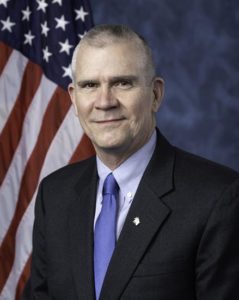WASHINGTON — On numerous occasions, VA officials testifying before Congress have, upon being asked, been unable to provide accurate demographics on the department’s patient population, because the information had not been collected or collated. Some examples include the number of LGBTQ veterans served by VA and the tribal affiliations for American Indian veterans, who sometimes are not even logged as American Indians.
To solve what they see as a serious issue in VA’s understanding of the people it serves, legislators are in the process of drafting a bill that would mandate the department collect specific data on veterans. The bill is finding resistance, however, among VA officials and among Republican lawmakers who see the legislation as an invasion of veterans’ privacy.
The VA Demographic Data Collection Improvement Act would require VA to obtain veterans’ legal and preferred names, race, tribal affiliation, identification with any religious group, sexual orientation, gender identity, preferred pronouns, marital status, parental status, education level and income level.
“The number of times VA has been unable to provide information to Congress because, as witnesses have said, [VA doesn’t] collect that data, is concerning,” declared House VA Subcommittee on Technology Modernization Chair Frank Mrvan (D-IN) at a hearing on pending legislation last month.
While VA officials agreed with the intent of the bill, they had concerns about the current language. “It’s unclear from the draft how the data will be collected or stored. This raises concerns with HIPPAA, the Privacy Act, and the Paperwork Reduction Act that need to be addressed,” explained Paul Brubaker, acting principal deputy assistant secretary of VA’s Office of Information Technology.
He also said that the 180-day timeline in the current draft of the bill is too short for VA to fulfill the bill’s demands. Other officials testified that VA already has much of the data listed in the bill but that the department needs to be better about managing and integrating that data.
However, Brubaker agreed that collecting this information from veterans is important for the department.
“The secretary has made a commitment to approaching our veteran population with human-centered design in mind—empathy, understanding and opening our ears and listening to what the veteran population is telling us,” Brubaker said. “There is demographic data that’s really important for us to collect and analyze so we can better serve that population.”
Invasion of Privacy?
Several Republican members of the committee argued that asking veterans for this kind of personal information would be a gross violation of privacy and does not serve the health of veterans.
“Mandatory collection of this information is unprecedented,” declared subcommittee ranking member Rep. Matt Rosendale (R-MT) during his opening remarks. “At best it’s a misguided imposition of privacy. At worst it’s left-wing social engineering on a massive scale. Rather than strengthen the veteran’s personal relationship with their doctor, this legislation would interrogate them and place their most sensitive information in a mammoth database visible to virtually every VA employee. Putting veterans on lists and dividing them into intersectional groups would be a terrible distraction.”
Representatives of several veterans’ service organizations (VSOs) argued that this data could indeed have a direct impact on the health of veterans.
Patrick Murray, VFW deputy director, cited recent veteran suicide reports that failed to collect robust demographic data.
“[The VA suicide] report in its current form does not capture social determinants of health, which VA research indicates are often better predictors of suicide or suicidal ideation,” Murray said. “We believe this proposal would help collect and identify data that could shape the paths forwards in suicide prevention efforts.”
“This bill is not about identity politics,” added Jennifer Dane, executive director of the Modern Military Association of America. Dane noted that LGBTQ veterans have a higher propensity for substance abuse, STIs, intimate partner violence and suicidality and that the lack of a comprehensive way to count and identify them has hobbled the department’s ability to provide care at a system level.
“Failure to collect demographic data on veterans puts the department at a disadvantage in fully understanding the greatest crises in our community and has contributed to deep health disparities and inequitable health outcomes for minority veterans,” explained Lindsay Church, founder of Minority Veterans of America.
As to Republican’s concern that the bill violates veterans’ privacy, Church suggested simply giving veterans the option to not answer. She also suggested providing options for veterans to use their own language in answering some of the questions rather than simply checking a box.

